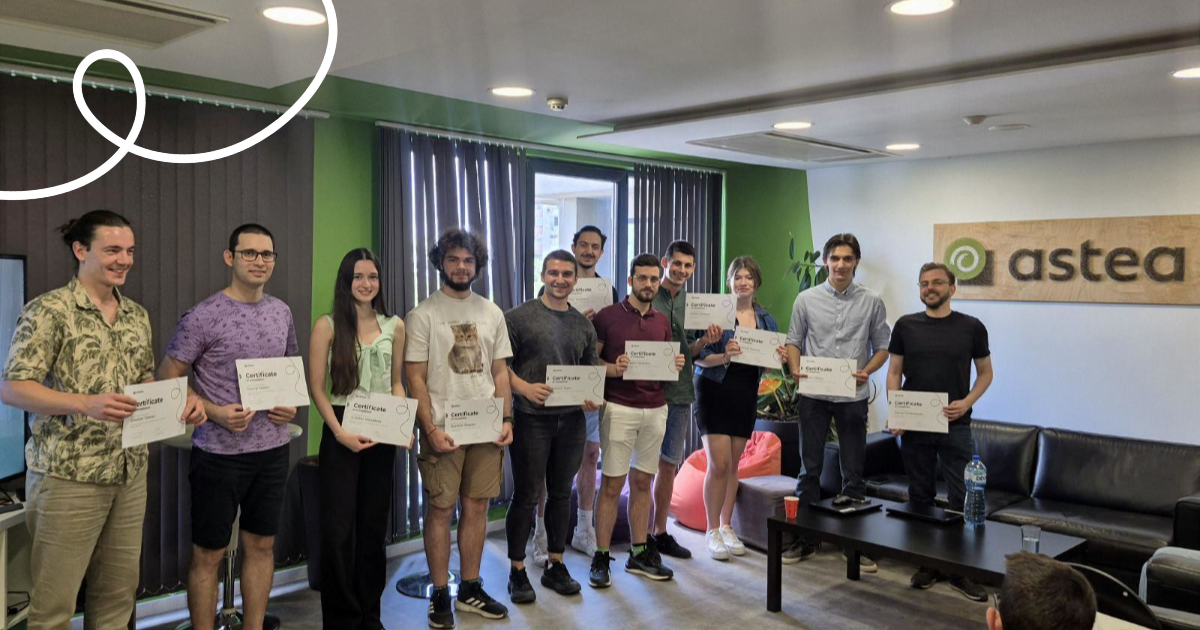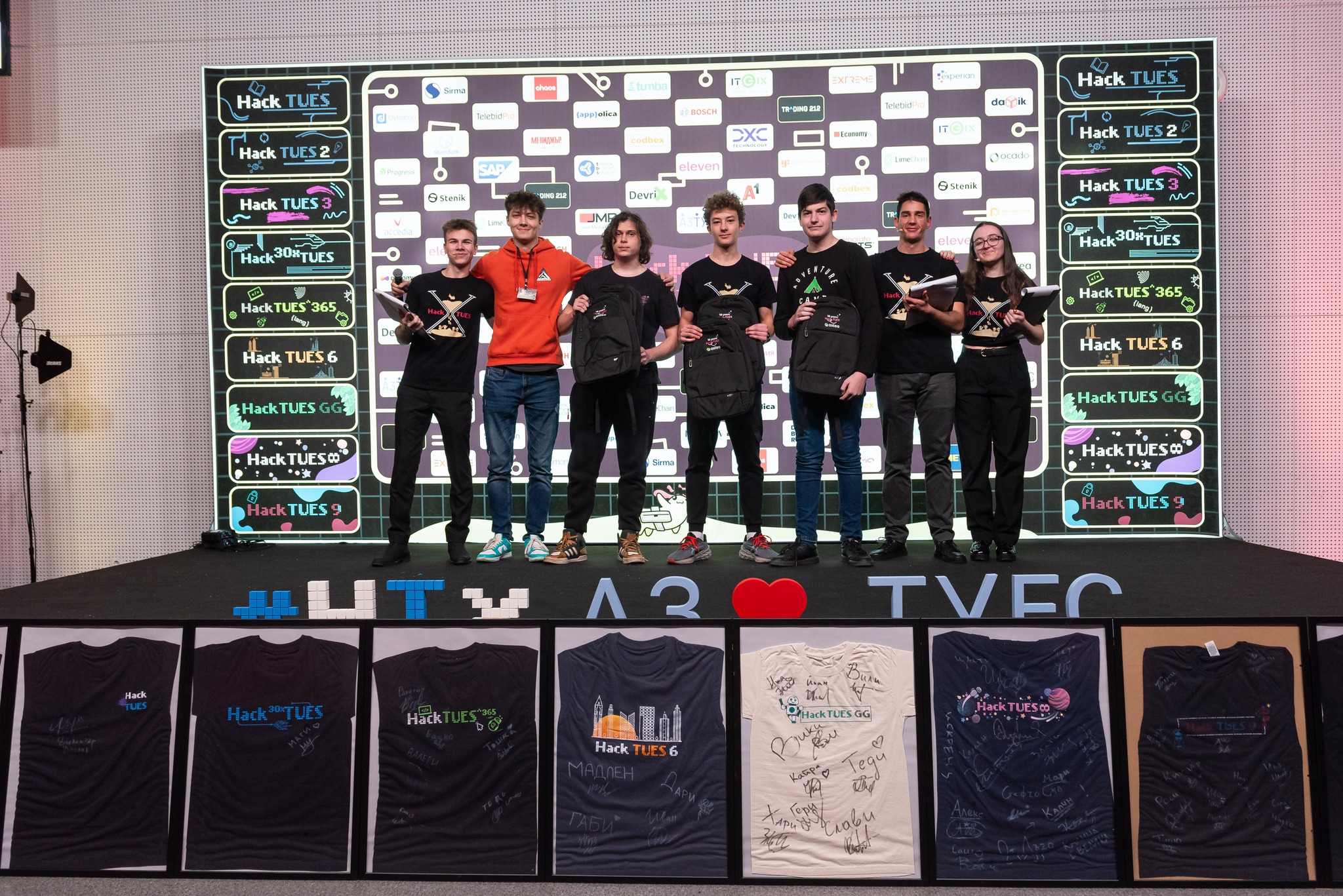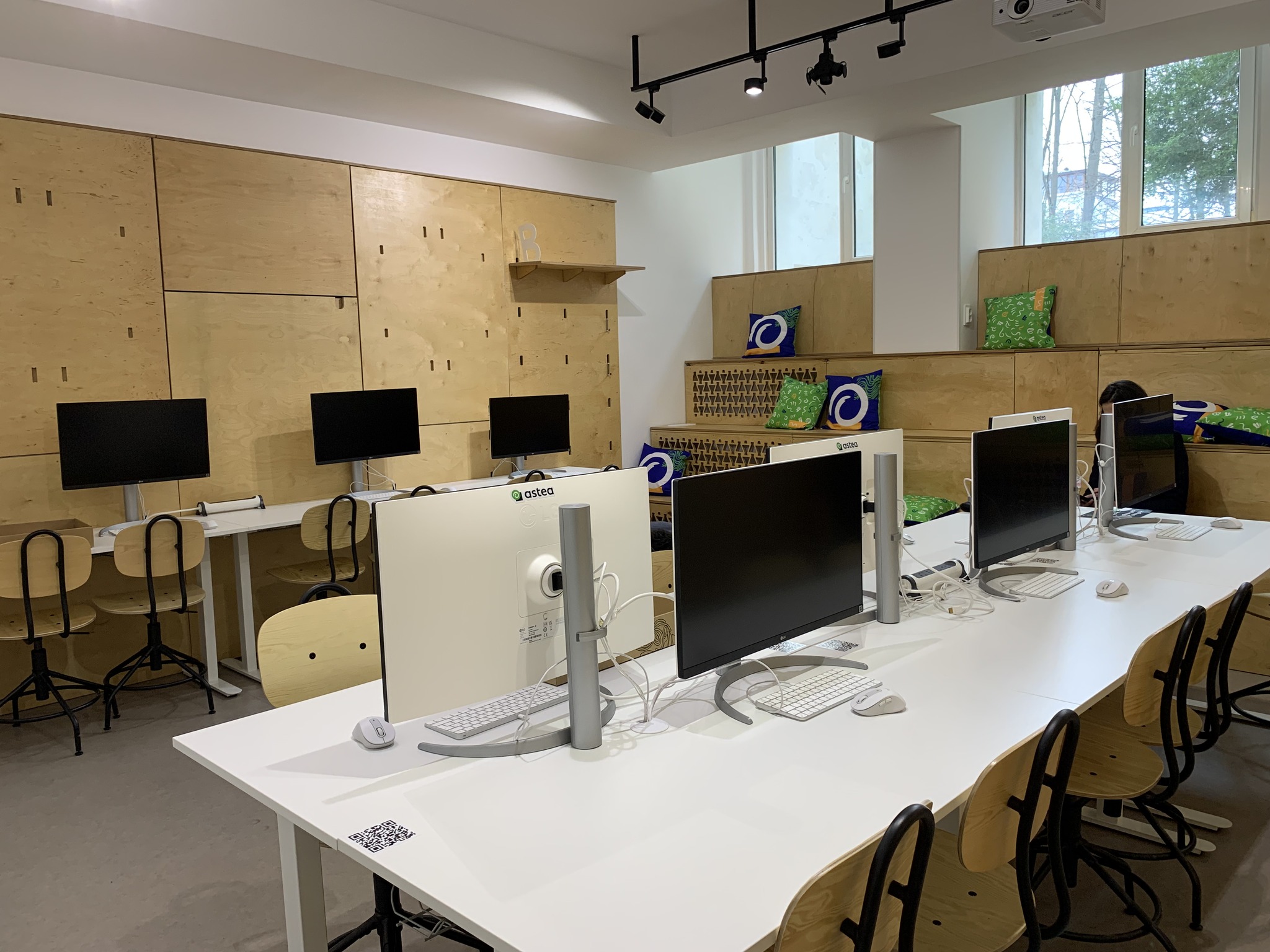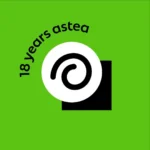Anna is an example of why people can’t escape from their true calling and she talks about if there is anything in common between software testing and writing articles.
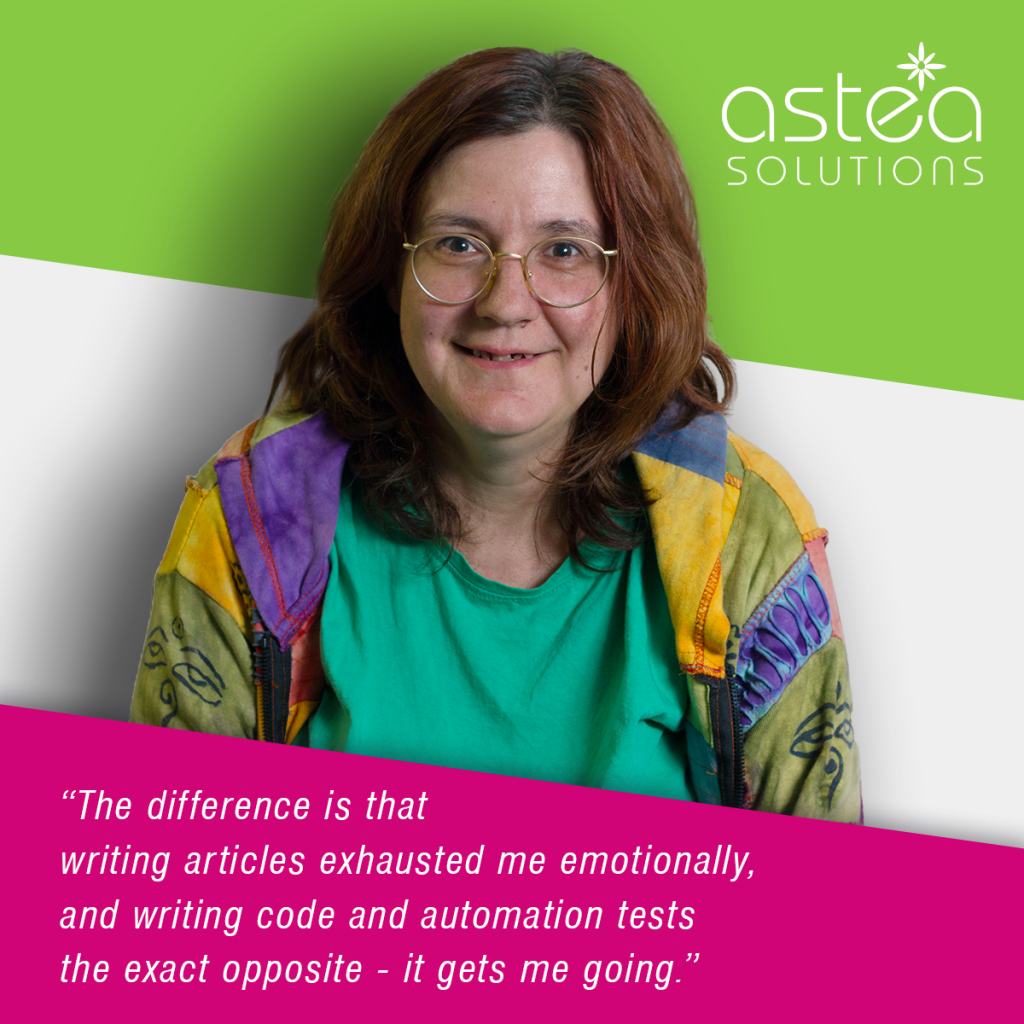
Introduce yourself.
My name is Anna Wolf and I am a Senior Quality Assurance Engineer at Astea.
How did you start working at Astea?
My career is moving in a very interesting way. While I was studying at Sofia University’s Faculty of Mathematics and Informatics, I started working as a developer on a very interesting project with stockbrokers. Since there is no way to make a quality product without the necessary knowledge I had to dig deeper into the stock market. After a while, the stock market in Bulgaria collapsed, our project hit a rock, and the company went into bankruptcy. Back then there were hardly any computers, not to mention a need for developers, but I heard about a job opening for a local newspaper and they were in desperate need of a financial reporter. I thought that this was something temporary but I stayed in the industry for almost 30 years. All this took a 180 degree turn when there was no need for quality financial analysis anymore and the IT sector started booming. And this was my call, to go back where I belong and do what I have dreamed for since I was 16.
Looking back, what would you say about your current work at Astea?
At first, coming from the media industry, it seemed strange to me that there was no shouting and that people are treated with respect, regardless of their position. I was waiting for my colleague to show their “true self” but soon I realized that all of this was not an act. I appreciate the calm and inspiring atmosphere at the office throughout my workdays.
Tell us an interesting story from your experience as a QA.
For real? Sometimes when I had a good day or had a busy one, I want to share it with someone. Do you know how hard it is to explain, to someone who is not in the IT industry, what a QA does, nonetheless to tell them a story which they will find interesting? I have learned not to share stories from my experience as a QA unless I wanted all my non-developer friends to start avoiding me.
What are the three qualities that a QA needs to have?
When I think about it the required qualities are way more than three. What bothers me a lot is the advertisements of some IT academies which sound like “You are not that smart or lack education but you want a developer’s salary? Do you want to make loads of money with a few clicks with your mouse? Enroll in our courses and become a QA!”. I find this not only ridiculous but also insulting. Indeed, you can become an entry-level QA without lots of technical knowledge, but you cannot evolve without having the desire to learn more technologies. All this gives the false impression that anyone can do it. I know a lot of well-educated people to whom I would not recommend starting a career as a QA. Because intelligence, though necessary, is not sufficient. If I had to pick only one important quality then it would be courage. There is something wrong with the way we educate children. We punish the kids for every honest mistake, and the result is grown-ups who avoid all challenges. The unknown is not inspiring for them, they are too afraid. Afraid to make a mistake, afraid to make a fool of themselves, afraid to not be up to the task. In order to be a good QA, or being good at something, you should not be afraid to ask questions and you should keep learning new things – whether it is technology-related or getting more familiar with the client’s business. In addition to having intelligence and courage, I would say that the QA should also be an artist and be able to think as the end-user. What may seem like a very intuitive UI to a developer could potentially be a complete nightmare to the average user.
How do you maintain your knowledge?
Clients have their way to keep me entertained. Depending on the project sometimes API testing can be a priority and other times back-end calculations or stress testing. Also, it helps that I am always curious. I enrolled in penetration testing courses although I was not drawn to this line of professional development. I just wanted to know what it was all about. I learn a lot of new things by helping with the trainees taking part in our internship program – you can be convinced that you know something very well until you have explained it six times and start questioning yourself in a way. I think that If you can’t explain what you know in simple words then you don’t understand it well enough.
You have worked as a journalist for a long time. Is there anything in common between software testing and writing articles?
Actually, yes there is. In order to make a forecast for a specific stock or industry, you need to be able to gather information, analyze it and look at every aspect of the market from a different perspective. Half of my job now is to do the same – understand the client’s business so that I can understand whether the implementation meets its goals. The best bug is the one caught when you are familiar with the requirements. The difference is that writing articles exhausted me emotionally, and writing code and automation tests the exact opposite – it gets me going.
You need to write fake news for QA engineers to become viral. What will the title be?
The year has passed without a single failure in the e-government.
What inspires you?
The unknown.
What would be your advice to the newcomers at Astea?
My advice is – don’t take anything for granted. Astea gives you the opportunity to grow and develop professionally in a very warm and pleasant atmosphere. Many newcomers are too young and have no experience with other employers or in other IT sectors in general, and are unaware of their luck to be part of Astea.
